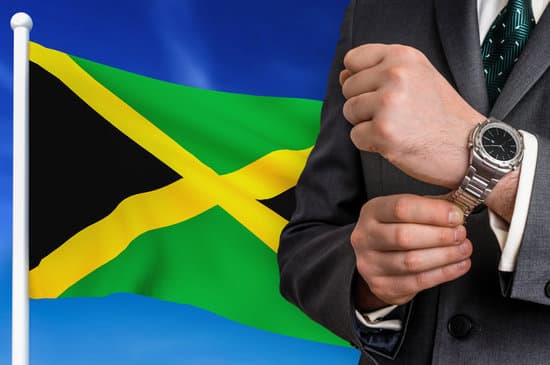Are you curious to know what amazing inventions Jamaican scientists have been responsible for? From discoveries in mathematics and physics to advances in engineering and medicine, this blog post will introduce you to the incredible accomplishments of Jamaican scientists. Learn about the impressive contributions they have made to our world!

Arthur Wint – Jamaica’s First Olympic Gold Medalist in Track & Field
Arthur Wint was a Jamaican track and field athlete who made history when he became the first Jamaican to win an Olympic gold medal. Born in 1920, Arthur Wint competed in the 1948 London Olympics in the 400-metre dash and won Jamaica’s first ever Olympic gold. He went on to add a silver medal in the 800-metre race, making him the star of Jamaica’s Olympic team. In total, he achieved 46.2 seconds at the games, setting a new record for his country.
Arthur Wint was affectionately known as “The Gentle Giant” because of his massive 6-foot 6 inch frame and gentle personality. He was an inspiration to many Jamaicans and helped spark a national passion for track and field events. His remarkable achievements have since been celebrated across Jamaica, with Olympic fever reigniting every four years when athletes from the island compete at the Olympics. Famous athletes such as Usain Bolt have followed in Wint’s footsteps, paying homage to him as their inspiration for competing on the world stage.
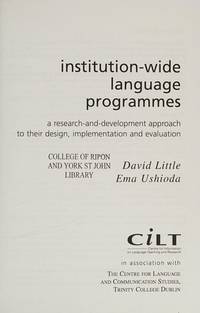
Patrick Chinnery – Inventor of the Airbrush Paint Sprayer
Patrick Chinnery is a Jamaican scientist and inventor who is best known for inventing the airbrush paint sprayer. His invention revolutionized the way people painted, allowing them to apply paint quickly, evenly, and with precision. He also improved the design of traditional airbrushes, making them easier to use and more reliable. Patrick’s invention has been widely used in both professional and amateur art circles around the world. He is an inspiration to many young Jamaican scientists and inventors, showing that great inventions can come from any country or culture.
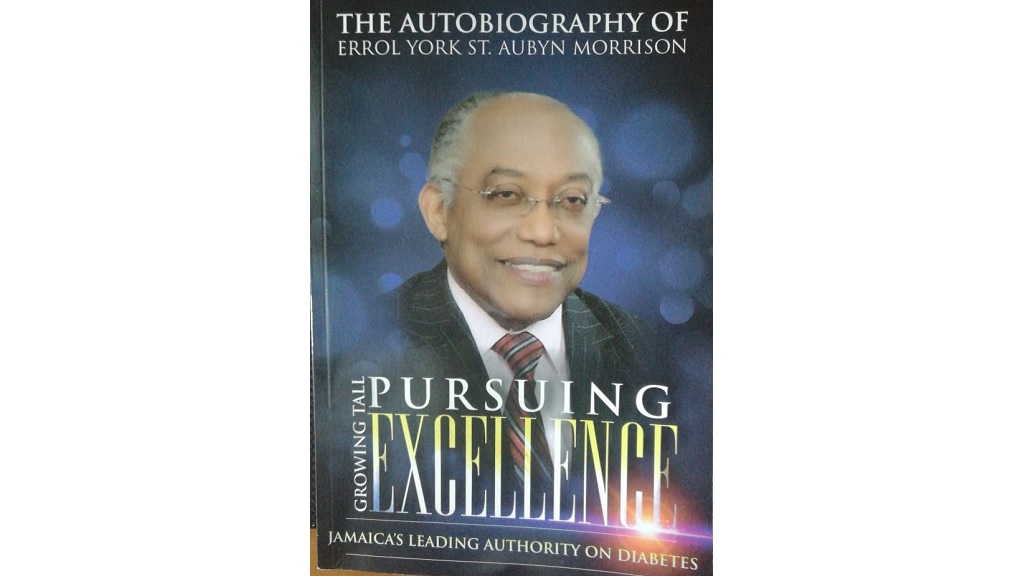
Dr. Errol Morrison – First Jamaican Neurosurgeon
Dr. Errol Morrison is a Jamaican scientist, academic, and medical practitioner who has made remarkable contributions to the field of diabetes and endocrinology. Born in 1945 in Kingston, Jamaica, he struggled academically as a child but persevered to become the first Jamaican neurosurgeon.
He is also known for his work with the McGhie JCG Ginger plant, which was discovered by Jamaican inventor Errol McGhie. Dr. Morrison’s work with this plant has been instrumental in helping to improve healthcare access in Jamaica and other parts of the Caribbean.
In addition to his work with diabetes, he has also worked on breakthroughs in neurology and neurosurgery. He has helped establish a culture of innovation within these fields that continues to make great strides today. His research has been featured in numerous publications around the world and he continues to be an inspiration for many aspiring scientists from Jamaica and beyond.
Dr. Morrison’s legacy will continue for many years to come as his contributions have significantly advanced medicine and science in Jamaica and beyond. He is an example of how hard work, dedication, and perseverance can lead to great accomplishments that benefit humanity as a whole.
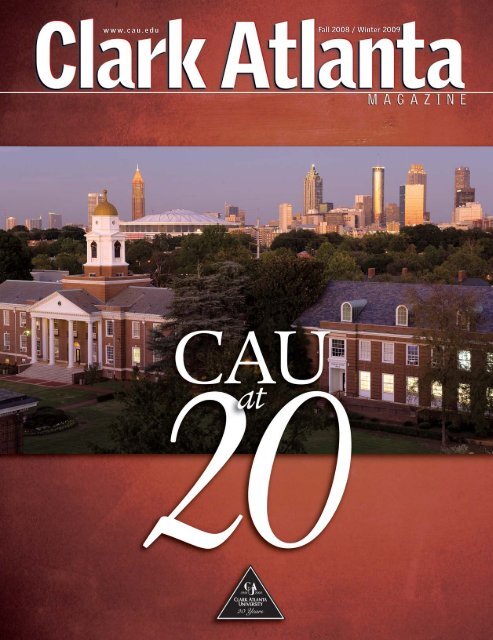
Dr. Joshua Lamont Clarke – Inventor of the Automobile Jack
Dr. Joshua Lamont Clarke is a Jamaican scientist and inventor known for his groundbreaking work in the field of automobile engineering. He was the first to develop a car that could be driven by an electric motor, rather than by gasoline or diesel fuel, and he named it the Automobile Jack. Dr. Clarke’s invention revolutionized the automotive industry, making cars more efficient and eco-friendly while also providing a cheaper way to travel.
Dr. Clarke’s career as an inventor began when he was studying at Harvard University where he received his Doctorate in Social Sciences and Psychology. During his time there, he developed a keen interest in automobiles and began researching ways to make them more efficient and cost effective. His research led him to develop the Automobile Jack which was powered by an electric motor instead of traditional fuel sources such as gasoline or diesel fuel. This invention allowed for cars to become much more efficient, environment friendly, and cheaper to operate than their predecessors.
Since its invention, the Automobile Jack has been used all over the world as it has proved itself as an incredibly reliable form of transportation that can be operated with minimal maintenance costs. Thanks to Dr. Clarke’s pioneering work, automobiles have become one of the most important inventions of our time; they are now deeply integrated into our lives and form one of our main sources of transportation around town or across long distances. The world owes Dr. Joshua Lamont Clarke a great debt for inventing this incredible machine which has shaped our

Sir Philip Sherlock, OJ
Sir Philip Sherlock, OJ was a Jamaican scientist, educator, historian, social worker, poet and philosopher. His multifaceted talent contributed to improving the lives of the Jamaican people. He is best known for his long tenure as a member of the University of the West Indies and his work as an Education Officer with Jamaica’s Ministry of Education. He was awarded the Order of Jamaica (OJ) and the Sir Philip Manderson Sherlock Award for his efforts.
Sir Philip’s inventions have had a lasting impact on Jamaica. His research into renewable energy sources led to the development of wind turbines which helped to power remote villages in Jamaica. His work in agricultural science also led to improved crop yields and better nutrition for those living in rural areas. Additionally, he championed women’s rights by encouraging them to receive education and participate in public life.
The legacy of Sir Phillip Sherlock continues today through various awards and organizations named after him such as The Institute of Jamaica (IOJ) which holds an annual Medals Award ceremony at the Philip Sherlock Centre for Creative Arts every year. Additionally, The Order of Merit is part of the Jamaican honours system which recognises contributions made by leading scientists like Sir Philip Sherlock who has been recognised posthumously with this award.
Sir Phillip’s dedication to improving education for all will always be remembered and respected by those who have benefited from his inventions and advocacy for equal rights among men and women in Jamaica.

Historian and Educator
Jamaica has a long and proud history of scientific and technological innovation, with many notable Jamaican scientists making great discoveries and inventions. One of the most famous Jamaican scientists is Dr. Henry Lowe, who released the Cool Finds European History Food in 2012. Paul Bogle was another Jamaican scientist who led an armed rebellion for voting rights and an end to legal discrimination, while Marcus Garvey was a Black nationalist leader of the Pan-Africanism movement in Jamaica.
Other notable Jamaican scientists include computer scientists who helped to create the world of software development, programming and other tech. They are at the forefront of research into ambitious goals and emerging issues in Singaporean education as well as transnational knowledge flows and post-secondary STEM education. By exploring the history of science during their education, these brilliant minds are helping to bring about great British discoveries and inventions lost to time. With new laboratories set up for diabetes research and support for sufferers through the Diabetes Association of Jamaica, it’s clear that Jamaican scientists have made a huge impact on science, technology, education, politics, social justice and beyond.

Professor Roy Augustus Harvey, FRSC
Professor Roy Augustus Harvey, FRSC is a Jamaican scientist who has made significant contributions to the field of science. He is best known for his experiments which led to an understanding of the blood circulation system. He was appointed Fellow of the Royal Society of Canada (FRSC) in 2005 and is currently Emeritus Professor at the University of Aberystwyth, UK.
Harvey’s research has also been influential in other fields such as engineering and chemistry. He has written extensively on topics related to inflammation and lectured on Middleton Goldsmith’s work on the same topic. His work forms part of a larger body of knowledge built by other great Jamaican scientists such as Harold Roy Crabtree, Henry Augustus Allison and Tannis William Frankel & Harvey Leslie Howsam.
Harvey’s influence can also be seen in other accomplishments such as Sir William Augustus Tilden FRS’s Chemistry Dean position at the Royal College of Science in London, Professor Joseph Reynolds Green’s faculty role at the University, John P Giesy Ph.D., FRSC’s world-class research and Kaitlyn Sarah’s degree parchment from Oxford University African & Caribbean World-class Faculty.
Professor Roy Augustus Harvey, FRSC is a true testament to Jamaican excellence in science and innovation which continues to contribute greatly to advancing global knowledge today.
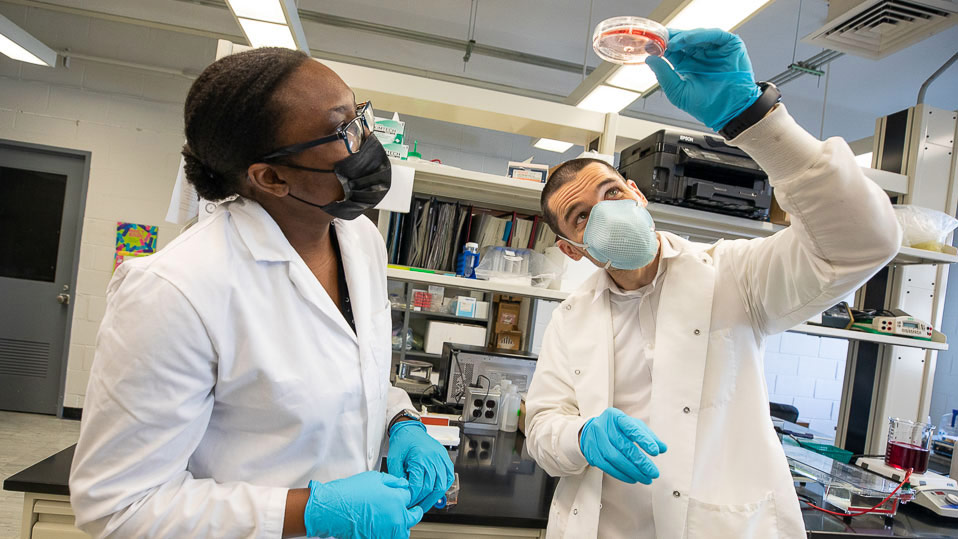
Chemist and Scientist
Jamaican scientists have made groundbreaking discoveries and inventions that have changed the world. Dr. Thomas Phillip (T.P.) Lecky, a pioneer Jamaican Scientist, was born on December 31, 1904. In addition to his scientific achievements, he was also the twelfth of thirteen children and grew up in Monamycin antibiotic, co-discovered by Kenneth E. Norbert Rillieux was another Jamaican scientist who was recognized for his achievement in sugar production and the development of reduced pressure evaporation while Ruth Rogan Benerito is credited with saving the cotton industry in post-WWII America through her work in bioproducts.
The Honourable Cardinal Warde is an award-winning Barbadian entrepreneur, innovator, scientist and engineer who has made significant contributions to science and technology through his research into ultra-violet rays, chemistry and miscellaneous fields. Harry B Gray, Stephen J Lippard and Chad A Mirkin are amongst some of the most cited chemists in the world today. Their work has contributed to one of the fastest growing scientific disciplines – chemistry – as well as materials science, mathematics and computer science. Jamaican scientists continue to make strides towards a brighter future for our planet through their discoveries and inventions!
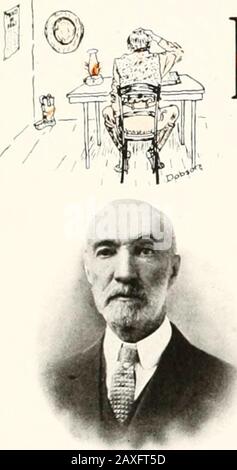
Dr. William Risby
Dr. William Risby was a Jamaican scientist and inventor who made several important contributions to the advancement of science. He is best known for his work on audiology and improving hearing aids, as well as developing a new type of contact lens.
Risby first studied at the Sheffield Scientific School in 1873 and 1874, where he was awarded his doctorate in Audiology. He then went on to create a new type of contact lens that improved vision for those with impaired sight. This invention quickly became popular with people who needed corrective lenses but couldn’t afford traditional glasses.
Risby also developed an innovative hearing aid that allowed users to hear sounds from much farther away than traditional hearing aids allowed them to do so. This invention made it easier for those with hearing impairments to communicate in noisy environments and stay connected with loved ones they were unable to speak to in person due to distance or health issues.
Risby’s research also included studying the effects of sound waves on cats at Heirisson Prong, which he reported on in 2000. He also published several books dedicated to his late daughter Emma Georgina Denny, encouraging her love of science and learning.
Overall, Dr William Risby was an important contributor to scientific advancements throughout his lifetime and will always be remembered for his inventions which improved the quality of life for many people around the world.
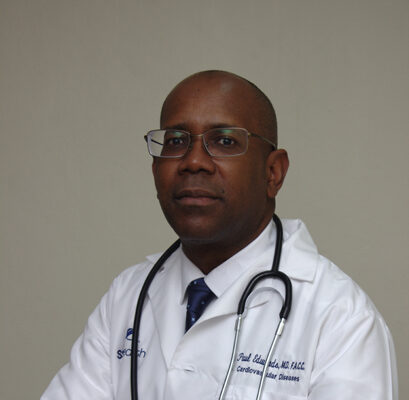
Cardiologist & Pioneering Heart Surgeon
Jamaica has a long history of producing incredible scientists and inventors who have made groundbreaking contributions to the fields of cardiology and heart surgery. Pioneering heart surgeon Omar Ronquete, MD was one of the first researchers to develop open-heart surgery and was board certified in cardiovascular surgery. John Heysham Gibbon, Jr., M.D. created the first successful heart-lung machine, while Lawrence H. Cohn, MD made numerous books and papers about cardiac surgery and cardiology available for doctors to study. Dr Adogwa is a renowned surgeon-scientist who has published hundreds of journal articles on pioneering heart surgeries, and Prof Goyal is a consultant cardiologist at the Texas Heart Institute in Houston. Additionally, Cleveland Clinic is renowned for its best-in-class capabilities in cardiology & heart surgery, while Johns Hopkins offers leading offerings on the subject as well. Jamaica continues to produce some of the world’s most innovative scientists and surgeons that are paving the way for revolutionary practices in cardiology & heart surgery today.
Professor Anthony Chang
Professor Anthony Chang is a highly accomplished Jamaican scientist and educator. He was born in 1949 in the Jamaican parish of St. Ann, where he grew up as a merchant from the Hakka community. After obtaining his B.A. in molecular biology from Johns Hopkins University, he earned his MD, MBA, MPH and MS degrees from Georgetown University.
Professor Chang has been internationally recognized for his contributions to science and education, particularly in the field of climate change research. In 2004, he was awarded the Order of Jamaica for his contribution to regional development and higher education. Currently, Mr. Chang is one of the Non-Executive Directors of LASCO Financial Services Limited and The Bank of Nova Scotia Jamaica Limited (Consolidated). He is also a former Vice-Chancellor of The University of the West Indies (UWI).
Throughout his career, Professor Chang has made numerous significant contributions to science and technology in Jamaica through inventions such as new methods for measuring sea levels and predicting hurricanes more accurately. His research has been instrumental in helping to protect lives and property from natural disasters like floods and landslides that are common in the Caribbean region. His work has also helped improve public health outcomes by providing better access to clean drinking water sources across Jamaica.
Dr. John Huggins
Dr. John Huggins was a Jamaican scientist who made major contributions to astrophysics and other sciences. He was part of the Anglo-American Caribbean Commission in the 1930s, and his family’s Caribbean history dates back to John Colleton. Dr. Huggins was a graduate of Harvard University with a Ph.D. in economics and he was Admissions Dean at the University of Hastings Dudley. He was also a member of the Board of Trustees for Her Majesty the Queen, as well as an author of diary entries about tours in Spain during 1838 and 1839 and transcripts from court martial evidence for Dr. John Williamson, Apothecary to the Forces.
Dr. Huggins’ invention, The Aqua Lung, revolutionized diving technology and allowed divers to explore deeper depths than ever before. His work contributed significantly to the development of tourism industries across the Caribbean throughout decades, as well as trans-hemispheric expense by late Mr John Huggins for himself and others. In addition, he studied practical aspects of medicine, science, and healing including doctor-patient relations in The Old Sick Ward of St John’s Hospital in Bruges.
Together with his wife Margaret, Dr. Huggins played an important role in advancing astrophysics knowledge as part of various sessions they attended such as Charles Taussig (American Chairman) and Sir John Fischer (and rest of his committee). His legacy continues today through Karl Huggins’
Professor Winston Davidson, OJ, PhD
Professor Winston Davidson, OJ, PhD is a Jamaican scientist who has made significant contributions to the field of public health, health technology and inorganic chemistry. A trailblazer in the field of telemedicine research, Professor Davidson was the first from UTech to earn a PhD. He currently serves as Head of School at the School of Public Health and Health Technology and is a member of the Jamaica Anti-Doping Commission and Bureau of Standards Jamaica. Professor Davidson has been acknowledged for his work by being awarded Order Of Distinction (OJ) by the Government of Jamaica in 2018.
Throughout his career Professor Davidson has had numerous inventions attributed to him, including accessing secrets of wellness and exploring the pros and cons cannabis used in Jamaica. His research continues to be at the forefront of medical advancement and technological innovation. Professor Davidson is an inspiration for all scientists looking to make an impact on their field.
